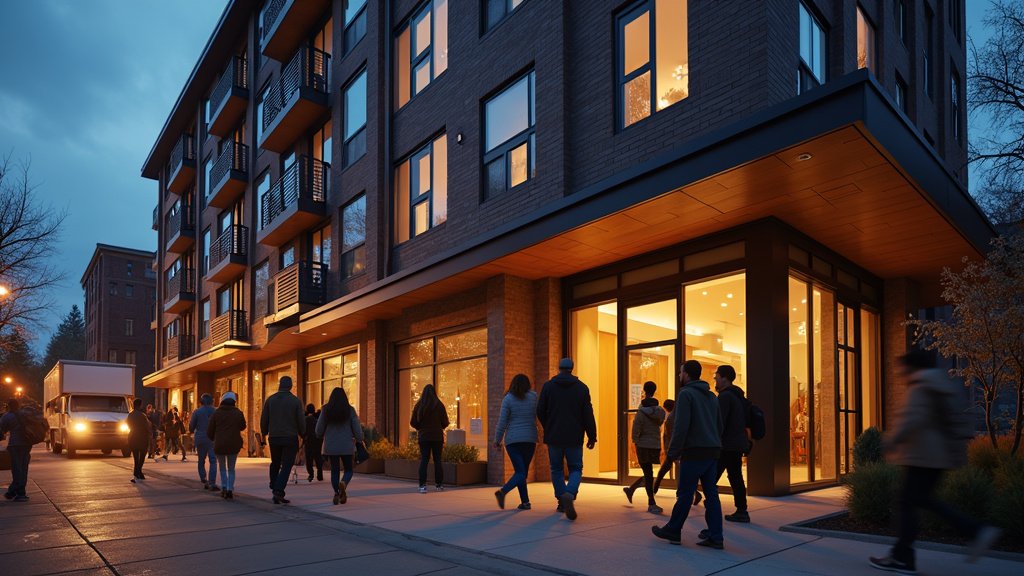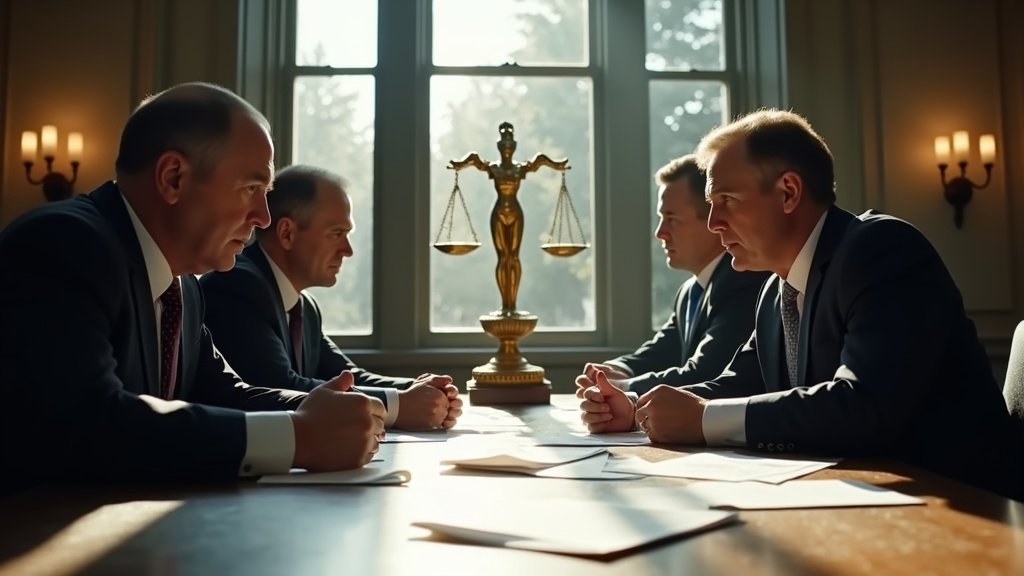Grants Pass’ Ongoing Challenge
A year has passed since the U.S. Supreme Court delivered a significant legal victory to the Southern Oregon city of Grants Pass by upholding its controversial ban against homeless people camping in public spaces. For city officials, the ruling was seen as affirming their approach to managing the visible manifestations of homelessness. However, a year into this new legal landscape, local authorities in Grants Pass report a persistent and undeniable reality: they still cannot clear all of the homeless camps within the city limits.
This situation underscores the profound complexity of the homelessness crisis, suggesting that legal tools, while potentially necessary components of a strategy, may not be sufficient on their own to resolve the deep-seated issues that lead to unsheltered populations. The experience in Grants Pass serves as a compelling case study, illustrating the enduring challenges faced by municipalities nationwide as they grapple with a crisis that transcends simple regulatory measures.
The Context: A City Responds to Visible Homelessness
The city of Grants Pass, like many communities across the United States, has been navigating the increasing prevalence of homelessness. Concerns ranging from public health and safety to the use of public spaces spurred local efforts to address the issue. Among the measures implemented was a ban on camping in public places, a policy intended to restrict unsheltered individuals from setting up temporary residences in parks, along riverbanks, or on sidewalks.
Such bans have become a point of contention and legal challenge in various jurisdictions, often raising questions about the criminalization of homelessness and whether cities can prohibit individuals from resting or sheltering themselves in public when adequate alternatives are unavailable. It was against this backdrop that the Grants Pass ordinance faced scrutiny, eventually making its way through the court system.
The Supreme Court’s Affirmation
The legal challenge mounted against the Grants Pass camping ban culminated in a review by the highest court in the land, the U.S. Supreme Court. The Court’s decision to uphold the ban was widely interpreted as validating the city’s legal authority to enforce restrictions on public camping. This ruling was significant not only for Grants Pass but potentially for other cities across the Ninth Circuit and beyond that have enacted or are considering similar ordinances.
The decision provided Grants Pass officials with clear legal standing to enforce their ban, seemingly removing a major legal impediment to their efforts to manage homeless encampments. For proponents of the ban, the Supreme Court’s affirmation represented a crucial step forward in reclaiming public spaces and addressing the perceived disorder associated with visible homelessness. It granted the city a powerful legal instrument.
One Year Later: Persistent Camps
Despite the landmark legal victory at the U.S. Supreme Court and the clear authority to enforce the camping ban, the reality on the ground in Grants Pass, Southern Oregon, a year later tells a story of an ongoing struggle. Local officials have publicly reported that they still cannot clear all of the homeless camps that exist within the city.
This report comes a full twelve months after the Supreme Court’s decision. It indicates that while the legal pathway may have been cleared, the practical challenges of dismantling encampments and addressing the needs of unsheltered individuals remain formidable. The continued presence of camps suggests that enforcement alone, even with the backing of the nation’s highest court, does not automatically translate into the complete eradication of public camping.
The Gap Between Legal Authority and Practical Outcomes
The situation in Grants Pass highlights a critical disconnect between gaining legal authority to prohibit an activity and successfully implementing policies that lead to a desired outcome in complex social issues like homelessness. Winning in court allows the city to enforce its ban, but it does not automatically provide alternative housing, necessary support services, or address the root causes that lead individuals to live unsheltered.
The persistence of homeless camps one year after the Supreme Court ruling suggests that individuals continue to camp in public for reasons that the ban, even when enforceable, does not fully negate. These reasons are often multi-faceted, involving shortages of affordable housing, lack of access to mental health or addiction services, unemployment, and personal crises.
While the Grants Pass officials now possess the affirmed legal tool of a public camping ban, the report that they still cannot clear all camps indicates that the human and systemic factors driving homelessness continue to present significant obstacles. Clearing camps often requires identifying alternative locations or resources for those displaced, a challenge that remains regardless of the legal framework.
Implications for Grants Pass and Beyond
The ongoing reality in Grants Pass holds implications for the city’s strategy moving forward and offers lessons for other municipalities. It reinforces the understanding that addressing homelessness requires a comprehensive approach that extends beyond punitive measures or bans on behavior.
The city’s legal victory was significant, providing a framework for enforcement. However, one year later, the visible issue of camping persists, prompting questions about the resources, strategies, and support systems needed to complement legal enforcement efforts. The report from local officials in Grants Pass confirms that the challenge is far from over and that the path to resolving the homelessness crisis is complex, requiring sustained effort and potentially a broader range of interventions than legal actions alone.
In conclusion, one year after the U.S. Supreme Court upheld the ban against homeless people camping in public in the Southern Oregon city of Grants Pass, local officials report that they still cannot clear all of the homeless camps. This reality serves as a stark reminder that while legal battles can be won, the multifaceted nature of the homelessness crisis necessitates ongoing, complex efforts that reach beyond the courtroom.




